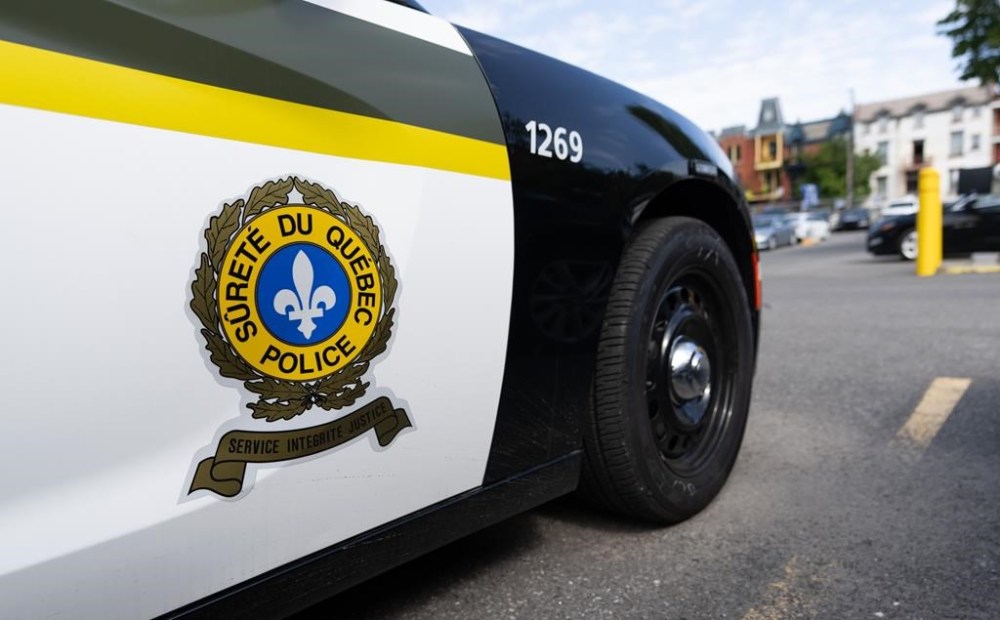Quebec police say cutting blood-alcohol limit to .05 would save up to 14 lives a year
Advertisement
Read this article for free:
or
Already have an account? Log in here »
We need your support!
Local journalism needs your support!
As we navigate through unprecedented times, our journalists are working harder than ever to bring you the latest local updates to keep you safe and informed.
Now, more than ever, we need your support.
Starting at $15.99 plus taxes every four weeks you can access your Brandon Sun online and full access to all content as it appears on our website.
Subscribe Nowor call circulation directly at (204) 727-0527.
Your pledge helps to ensure we provide the news that matters most to your community!
To continue reading, please subscribe:
Add Brandon Sun access to your Free Press subscription for only an additional
$1 for the first 4 weeks*
*Your next subscription payment will increase by $1.00 and you will be charged $20.00 plus GST for four weeks. After four weeks, your payment will increase to $24.00 plus GST every four weeks.
Read unlimited articles for free today:
or
Already have an account? Log in here »
Hey there, time traveller!
This article was published 05/12/2024 (373 days ago), so information in it may no longer be current.
QUEBEC – The Quebec government remained opposed to lowering the legal blood-alcohol limit in the province on Thursday, despite a provincial police study that estimates reducing the limit to .05 would save between 10 and 14 lives every year in the province.
The figures are mentioned in heavily redacted documents obtained by The Canadian Press through an access to information request.
The Coalition Avenir Québec government has steadfastly refused to lower the limit to .05 from .08 — which represents 80 mg of alcohol per 100 ml of blood — despite previous calls from the province’s automobile insurance board and a Quebec coroner.

All other provinces have established a legal limit of .05 or lower — above which drivers could have their licences revoked or face other sanctions.
Speaking to reporters in Quebec City, Public Security Minister François Bonnardel said the redacted parts of the documents — which includes the recommendations — would not be released and the province has no plan to lower the current limit, which aligns with what is in the federal Criminal Code.
Bonnardel said statistics relating to road deaths are improving and the government has put in place enough “coercive elements” to combat drinking and driving.
The provincial police documents use figures from Alberta and British Columbia to project that Quebec could expect up to 14 fewer fatalities with the lowered limit, of which up to six would be in regions patrolled by the provincial police.
The same projection model shows five fewer fatalities based on Ontario figures.
“In light of the scientific literature, it appears that the general performance of drivers declines significantly once the 50 mg threshold is reached,” the document reads.
“A Quebec study specifies that driving with a blood-alcohol level varying between 50 and 80 mg increases the risk of being involved in a fatal collision by about four times.”
The police analysis also suggests that bars and restaurants may oppose the measure because of “the anticipated effect on attendance and sales in their establishments.”
In October 2023, coroner Yvon Garneau recommended lowering the legal limit after the October 2021 death of Stéphanie Houle, 46, a passenger of a car driven by someone whose blood-alcohol level was nearly double the Criminal Code limit of .08.
The Quebec Liberals said Thursday Legault’s party is becoming increasingly isolated in its refusal to lower the limit.
Monsef Derraji, a Montreal-area Liberal member of the legislature, said preventable road deaths must not be tolerated and the province should adopt a law early in 2025 to impose penalties starting at .05.
This report by The Canadian Press was first published Dec. 5, 2024.
